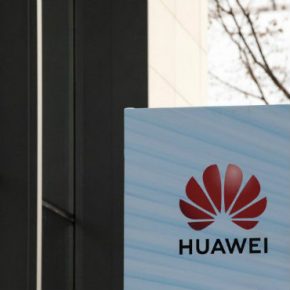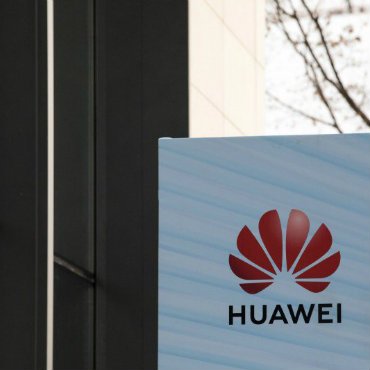Tydzień w gospodarce
Category: Trendy gospodarcze

(禁书 网, CC BY-NC-ND 2.0)
They are free to bid for tenders in the country despite the Czech National Cyber and Information Security Agency’s (NCISA) warning against the use of both software and hardware of the Chinese companies. Czech ministries and other state bodies concluded their assessments of risks connected with the use of technologies supplied by Huawei and ZTE. Most Czech ministries have confirmed that both of the Chinese companies will continue to be allowed to bid for state tenders in the Czech Republic.
The only exception to the rule so far has been the Ministry of Finance which excluded Huawei from a tender for My Taxes online portal in January this year. However, after the Chinese company submitted a complaint, the Ministry canceled the whole tender.
In December 2018, the Czech National Cyber and Information Security Agency issued a warning against the use of both software and hardware of Huawei technologies and ZTE Corporation after it had concluded that their use constitutes a security threat. The press release signed by the Agency’s director, Dusan Navratil, states that the result of the risk assessment is based on the consideration of the legal and political environment of China, where the two companies primarily operate.
“China’s laws, among other things, require private companies residing in China to fully cooperate with intelligence services, therefore introducing them into the key state systems might present a threat,” the Agency wrote in the press release. Other reason provided by the Agency is China’s long-term interest in the Czech Republic and the clandestine operations it conducts on the Czech territory.
However, the Agency’s spokesmen Radek Holy explained that the warning represents the least possible response under the Cyber Security Act, being mostly of an informative character. This means that it is completely up to the individual state bodies to decide what positions they take vis-à-vis the Chinese-tech companies.
Instead of proposing a clear plan on how to deal with the Chinese tech-companies on a European level, the European Commission kicked the can down the road, letting the individual member states determine the risk in allowing companies like Huawei to enter their national markets themselves.
In March 2019, the European Commission (EC) issued a recommendation for the EU member states on how to handle cybersecurity issues related to the roll out of 5G networks across the EU. It delegated the responsibility to the individual member states to conduct risk assessments and work together with other countries to create a framework for common European security checks on companies building high-speed 5G networks.
The EC asked member states to complete national risk assessments by the end of June and deliver them by mid-July. The EU will conduct its own risk assessment later this year. EU’s plans intentionally coincide with the auction of spectrum bands for 5G networks and the following rollout of first commercial 5G services across the continent.
In the statement, the EC said 11 countries have auctions planned this year and six others have auctions planned next year. According to industry experts, Huawei is considered one of the strongest candidates due to its ability to offer lower prices than most of its competitors.
Neither of the two Europe’s most influential members, France and Germany, have committed themselves to the American approach – banning Chinese tech-companies like Huawei altogether.
Instead of targeting Huawei specifically, German regulators are preparing a set of rules that will apply to all technological companies interested in partaking in the development of the German critical internet infrastructure, whether it is Nokia, Ericsson, or Huawei.
“The new rules should apply to all companies regardless of what their name is,” the president of the German Federal Network Agency, Jochen Homann told NTV, adding that “so far the Agency has found no evidence of Huawei doing something what they should not be doing.”
Earlier this year, French President Emmanuel Macron told Bloomberg that simply banning Huawei or any other company for that matter, from participation on the development of Europe’s 5G infrastructure is not an option.
On May 16th, the Chinese technology company Huawei was added to the so called “Entity List” maintained by the Bureau of Industry and Security (BIS) under the US Department of Commerce.
The Entity List, colloquially known as the US blacklist, identifies organizations and individuals deemed to be involved in activities contrary to America’s national security or foreign policy interests. Besides the 143 Chinese entities, there are more than 300 companies and individuals from Russia, Iran, and even the United Kingdom on the list. Companies based in the United States are legally required to apply for a license from the BIS before they export or transfer any items, including software and technologies to those companies.
The problem for Huawei is that it needs a number of US suppliers to develop its products, including chip makers, such as Intel and Qualcomm, and technology companies, such as Google. In fact, Google has reportedly already suspended Huawei’s Android license. As a result of the actions of the US government, Huawei is preparing for a 40 to 60 per cent drop in international smartphone shipments.
The Presidential administration of Donald Trump is of the view that Huawei has close ties with the Chinese government which presents national security threats to the U.S., Europe and allied countries.
American officials have been touring Europe trying to convince leaders in various EU countries not to enter any deals with the Chinese tech-company. However, so far it seems that Europeans have chosen a much more pragmatic approach based on a cost-benefit analysis. The example of the Czech Republic suggests that even if individual member states recognize a threat in dealing with the Chinese companies, it doesn’t necessarily translate to action.
Filip Brokeš is an analyst and a journalist specializing in international relations.



